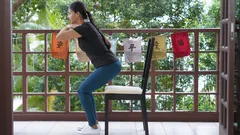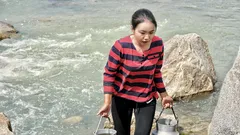
As the rainy season sets into the area, more than floodwaters could pose a risk to our lives. We are all acquainted with leptospirosis which is a serious disease that can develop at the time you least expect it. Did you know that it can also be a serious threat to your kidneys? Knowing how to protect your loved ones from this hidden danger could save their lives. Let’s find out the ways to remain healthy, safe, and secure even as the rain falls.
What is Leptospirosis?
Leptospirosis is a bacterial disease caused by Leptospira bacteria, which is often found in water contaminated by animal urine, specifically from rats. Here in the Philippines, reported cases rise during the rainy season, especially in urban areas where flooding is common. In 2023 alone, there were more than 2,400 cases reported locally, with many patients suffering serious kidney problems.
Why Your Kidneys Are at Risk
One of the most severe consequences of leptospirosis is acute kidney injury (AKI). The bacteria can quickly spread through the bloodstream, damaging the kidneys—our organs responsible for removing toxins from the body. Signs to watch out for include high fever, muscle pain, eye discomfort, and dark-colored urine. Early detection is crucial because if not treated, AKI can require costly and prolonged hospitalization.
Warning Signs You Shouldn’t Ignore
- Persistent fever or body aches after exposure to floodwaters
- Low urine output or unusually dark urine
- Yellowing of the eyes and skin ( jaundice)
- Nausea, sudden weakness
If you have been in floodwaters—even for a short time—soak your feet and legs, and seek medical attention if you start to feel flu-like symptoms within two weeks.
Everyday Ways to Keep Safe
The best defense is prevention. Simple actions can give your family an advantage against leptospirosis and keep your kidneys healthy. Here are the most effective steps based on doctors’ recommendations:
- Avoid wading or swimming in floodwaters as much as possible. Wear boots if you can’t avoid it.
- Clean any cuts immediately and cover them with a dressing before going out on rainy days.
- Disinfect your home environment—Leptospira can stay in puddles and soil for weeks.
- Drink clean, boiled water and avoid risky street food during flood season.
When to Visit Your Doctor
If anyone in your family feels unwell after flood exposure—like experiencing chills, high fever, or dark urine—don’t delay. Doctors advise quick consultation and, if recommended, early treatment using Doxycycline to lower the risk of severe complications. Remember, quick action is crucial when the kidneys are at risk.
Healthy Kidneys for a Healthy Life
Being mindful during the wet months and following these tips for a healthy rainy season can keep your kidneys safe and your family out of danger. Maintaining strong kidneys isn’t just about diet—it’s about making informed choices every day, especially in a country where floods occur frequently. Take care of your health and stay ahead of potential dangers.
Personally, I keep an emergency kit ready for the rainy season—complete with boots, wound disinfectant, and extra drinking water. After seeing how fast leptospirosis can hit, I never underestimate even the smallest routines to keep my family’s health and kidney safety a top priority. Trusting our instincts and acting on early symptoms can really make a difference.
People often ask “how to know if you have leptospirosis”. Being aware of the symptoms and responding quickly gives everyone in the community a better chance to fight this invisible threat.
 Meg Magazine
Meg Magazine















Comments